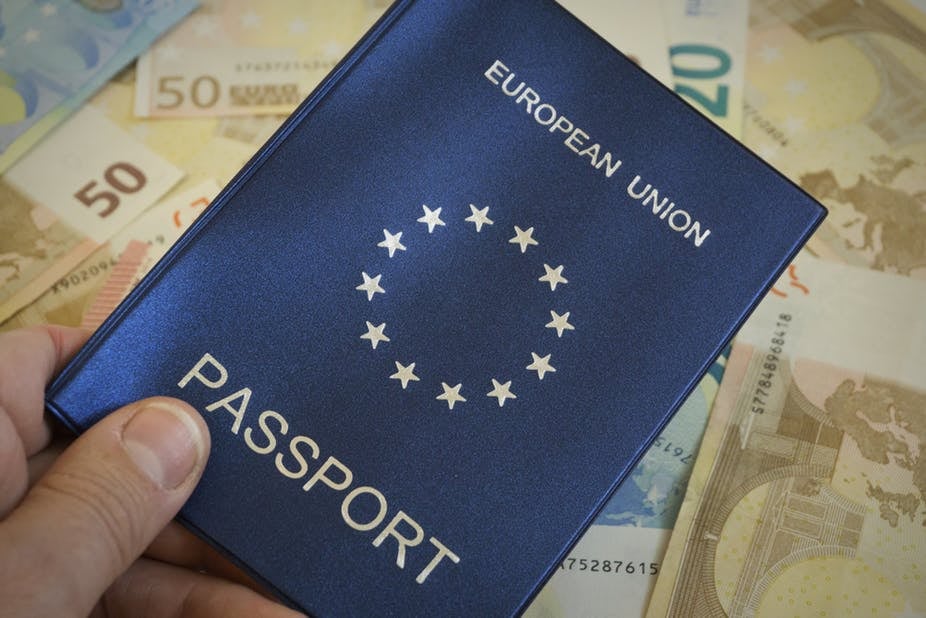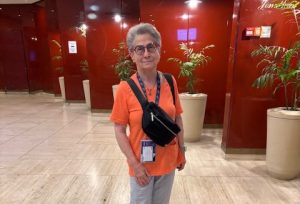For a long time, Dayn Gehry-Riis knew he was eligible for Polish citizenship through his grandfather, who fled the country during the Holocaust. In 2013, when he decided to study in Europe, he finally had the incentive to apply for that citizenship: cheaper education as an EU student. Gehry-Riis, who lives in Mississauga, Ont., decided to undertake the complicated citizenship application process, however, getting from application to citizenship took three “nerve-wracking” years.
One of the most stressful parts of the application was the sheer amount of paperwork that he needed to track down.
“For Poland, I had to get a letter every time, to make sure that my grandfather never worked for the federal government, that my grandfather never went to the army, because that may disqualify me,” he said. “I had to get naturalization documents, which may be very old and difficult to find. I had to get a… criminal background check. So, there’s a lot of pieces to the puzzle. There’s a very big application to fill, there’s translations to do, and for each country it’s different.”
In the end, Gehry-Riis finally got his Polish citizenship, and he helped family members with their applications as well. Then, friends started asking him for help and Gehry-Riis realized he was sitting on a potentially lucrative business. Together with Pedro Figuera Paez, he founded EuroPassport, a company that facilitates citizenship applications to European countries.
EuroPassport employs a network of lawyers across Europe to help in the application process, which starts with an eligibility assessment. Within seven business days, EuroPassport can let potential applicants know all the countries where they would qualify for citizenship. That may not seem especially impressive at first, but Gehry-Riis says that, due to the fluctuation of both laws and borders, citizenship eligibility is a much trickier puzzle to solve than most people expect.
Gehry-Riis gave the example of somebody who wanted to look into getting German citizenship because their grandfather was German. Different laws would be relevant to this person’s case depending on when the grandfather was born, and when he left Germany. As a further potential pitfall, even once Germany’s laws for a certain time are determined, “maybe at the time when the grandfather was born, it was not Germany, but it was France, because France and Germany changed borders a lot,” Gehry-Riis said.
Getting to the bottom of such a situation can be tedious, because lawyers in any one country will only comment on an applicant’s eligibility to that country, Gehry-Riis said. “A French lawyer will tell [whether or not] you qualify for France, right? But he won’t tell you that you don’t qualify for France, but you do qualify for Germany.”
Aside from expediting the process of determining eligibility, EuroPassport also has resources to help locate relevant documents that may otherwise be inaccessible to the applicants. They also assist in the actual application process since a mistake could sabotage the chances of gaining citizenship. “You only get one shot,” Gehry-Riis said.
As the grandson of a Holocaust survivor, Gehry-Riis said EuroPassport would also be very helpful for people who would otherwise be wading alone through the morass of citizenship restitution laws for the descendants of Holocaust survivors.
Current applicants can see the appeal. Rebecca Lash’s grandmother was a Holocaust survivor from Vienna, and she has recently begun the process of applying for citizenship to Austria. For Lash, who lives in Toronto, gaining Austrian citizenship is an “immense privilege,” with many advantages.
“I could live or travel or work within Europe… Citizens of the EU can attend universities there for free, or at a much lower cost… and it’s a meaningful and interesting way of situating myself within that heritage, to have that formally recognized,” she said.
Lash hadn’t heard of EuroPassport, but said she could see herself using it to help with the citizenship application process “if it became so complicated, and there were unforeseen challenges or costs associated with it, or other things that I wish that I knew,” she said.







